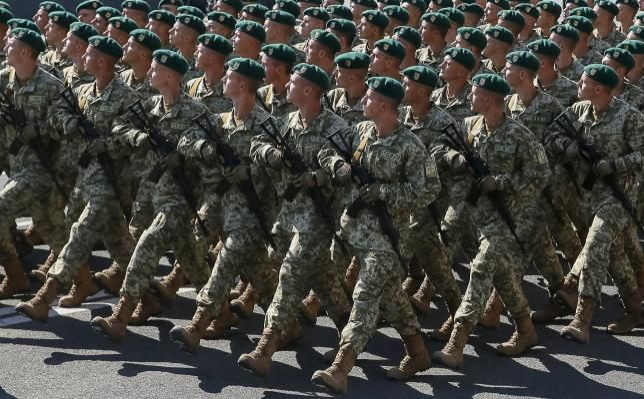Ukraine Military Doctrine Declares Russia The Enemy And NATO Membership A Top Goal

The Ukrainian National Security and Defense Council revised the country’s military doctrine Wednesday, defining Russia as the country’s adversary and laying out a long-term path toward NATO membership. At the meeting, the council backed plans to abandon its previous status as being against moving closer to the European Union and "to resume the strategic course on Euro-Atlantic integration," according to a report in Sputnik, a Russian state news site.
"The new military doctrine of Ukraine determines the Russian Federation as the country's military adversary and defines conditions for the liberation of temporary occupied territories of Ukraine," the council said in a statement.
At the Security Council meeting, Ukrainian President Petro Poroshenko said the doctrine "not only officially establishes the Russian Federation as Ukraine's military opponent, but states the task of relocating military units and creating the necessary military infrastructure in the eastern and southern regions."
The new doctrine is expected to be signed by Poroshenko in the coming days.
The move comes amid trouble in Kiev, where Poroshenko has been attempting to gain approval for a constitutional change that would divert power from Kiev to the independent regions in Ukraine, including Donbas and Luhansk which are currently under control of separatists. Critics say a change in power means the two contested regions would end up in rebel and Russian hands.
However, it may be the case that Ukraine is willing to forgo hanging on to both regions in exchange for peace and a shot at eventually joining the EU and NATO, without either of the war-torn regions, according to a report from Carnegie Moscow Center, the Russian outpost of the Carnegie Endowment for International Peace global foreign-policy think tank.
On Monday, when the parliament gave its initial approval to the bill that would decentralize power, riots and fighting erupted outside the parliament. The scuffles killed three police officers and injured more than 100 civilians.
Russia denies it has sent troops into eastern Ukraine or assisted the pro-Russian rebels in the region.
© Copyright IBTimes 2025. All rights reserved.






















